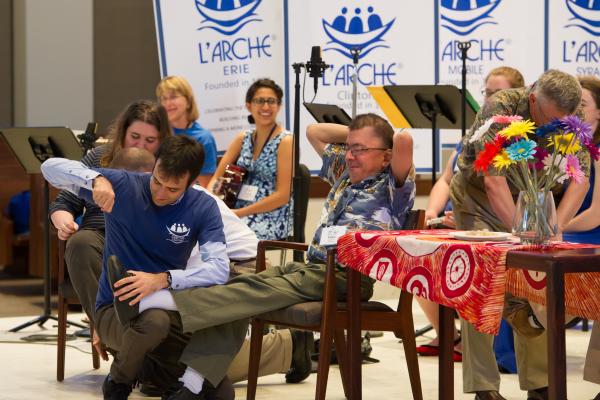Krista Tippett, host of the successful podcast On Being, is one of those transformed people. She described to Sojourners how her radio pilgrimage to an Iowa L’Arche community and an interview with L’Arche founder and Templeton Prize winner Jean Vanier influenced her way of thinking about Christianity:
“What I love about L’Arche is that it is a living manifestation of some of the most paradoxical and lofty ideals of Christianity — strength and weakness, light and darkness — that our culture and some of our churches can barely grasp. It’s very countercultural, very paradoxical. But it’s embodied at L’Arche—lived and breathed in an everyday way.”
After a flower procession and a dramatization of the origin story of L’Arche, Tippett joined in on the 50th-anniversary celebrations by publicly interviewing four L’Arche community members.
Read the Full Article

